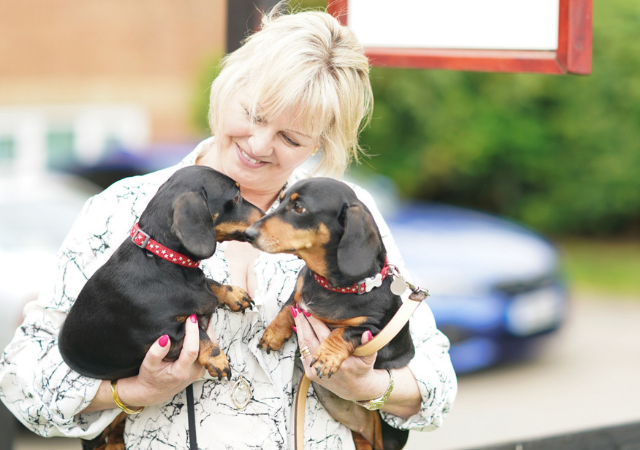
Breeding guinea pigs safely – why age matters
August 21, 2021
Is it safe to breed guinea pigs? It’s not difficult to breed these charismatic pets, but it can be unsafe if you don’t time it right. Female guinea pigs (sows) need to be young and fit for their first pregnancy to avoid tragedy.
Towcester Veterinary Centre’s nursing team has lots of advice on guinea pigs and breeding. Why not ask them questions on Facebook and help other owners at the same time?
Before breeding your guinea pig, head nurse Katy Kirkham recommends asking yourself:
- Do you have suitable, loving homes lined up for the piglets?
- Do you have additional housing to separate male guinea pigs & piglets from females?
- Have you considered the potential health implications?
The risks of breeding guinea pigs for the first time
Delaying a female’s first pregnancy after 6 months of age will result in serious, even life-threatening birthing complications. Part of her pelvis must separate before giving birth and after about 8 months it fuses together, and a caesarean is needed. This is a risk to mum and her piglets.
Another serious risk is pregnancy toxaemia, with stress and obesity being major predisposing factors. Other factors include advancing age, lack of exercise, fasting during pregnancy, and having many babies. Signs may not show until two weeks before the birth, so prevention is key: reduce stress, keep your guinea pig fit & healthy, feed a nutritious diet, and always provide fresh water. Also, house her indoors/somewhere sheltered to avoid cold weather risks.
Katy’s guinea pig breeding ‘need to know’ list:
- Male guinea pigs (boars) are sexually mature and able to mate at around 2-3 months; it’s 2 months (55-70 days) for sows but can be earlier for both. Neutering males is necessary to avoid pregnancies in opposite sex pairs – contact us about neutering.
- Sows have estrous (fertile) cycles throughout the year, but mostly in spring. Cycles last 16 days and she is fertile for 6-11 hours, mostly at night.
- A new estrous cycle begins shortly after giving birth. Boars should be housed separately before she gives birth to avoid her being pregnant again while nursing piglets.
- Guinea pig pregnancies last around 63 days; a large litter will make the pregnancy longer. You can tell if your guinea pig is pregnant as she will gain a lot of abdominal weight in the latter stages, even doubling in size.
- Sows do not build nests so time of delivery can be hard to spot. About 1 week before delivery, part of her pelvis will start to slowly widen, just in front of the external genitalia. An hour before delivery this should be about 1 inch wide.
- Uncomplicated births last about 30 minutes with 5 minutes (average) delivery per piglet.
- Nursing should be allowed for 2 weeks; male piglets should be removed at 3 weeks.
- Breeding can sometimes shorten a female guinea pig’s life expectancy.
Do you have any questions, like “how many babies can a guinea pig have?” or “how do you introduce potential mates safely?” or perhaps “are they born with hair?” Pop over to our Facebook page and our Towcester nurses will happily answer them.


